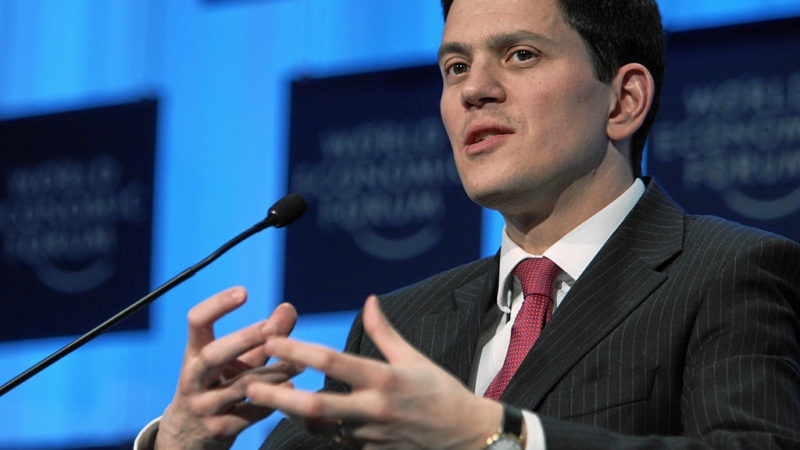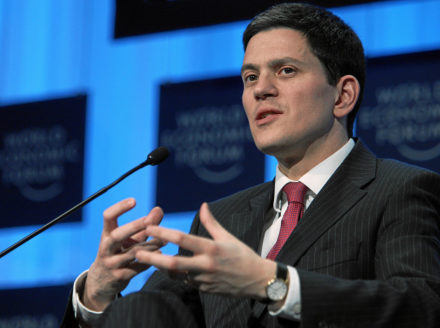

Jeremy Corbyn’s position on Brexit is a “residue” of a year ago when Labour seemed distant from power, David Miliband said today.
The former foreign secretary used a hard-hitting article to argue that Corbyn’s stance must change because it is not designed for the prospect of taking power.
Britain’s withdrawal from the EU is not merely a single policy issue but “holds the key to the economic foundations underpinning the tax and spending choices of a future Labour government”, Miliband wrote in The New European.
Corbyn’s position has shifted over the last 18 months but two weeks ago he told MPs that Britain cannot be a member of the single market after Brexit. He has said Labour respects the result of the referendum and repeatedly demanded a “jobs-first Brexit”.
Today Miliband, who now runs the International Rescue charity, picks apart Labour’s position of leaving the EU but trying to retain the benefits of membership.
“It is said that Jeremy Corbyn has changed in a fundamental respect since this time last year: he now believes he can and will be prime minister. But if so then his current position on Brexit is a residue, designed for opposition not for government,” he writes.
“Brexit is not just another policy issue, like health or transport. It is the foundation of other policy options, because it holds the key to the economic foundations underpinning the tax and spending choices of a future Labour government, never mind the regulatory pressures and options it will face.”
Miliband also takes on an argument put forward by commentator Owen Jones that people who face the bedroom tax “don’t care about Brexit”.
The New Labour figure said, however, it was Britain’s membership of the EU that allowed it to plan to scrap the tax and “provide an alternative to austerity”.




More from LabourList
Turning the page? Labour’s recovery in the polls show a path to 2029 victory
Restoration announce recommendations for NEC candidates
‘Factionalism at the top is weakening Labour – and handing a gift to Reform’